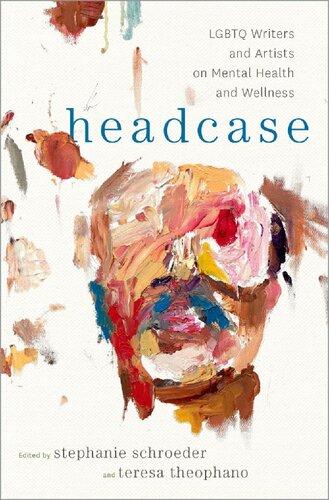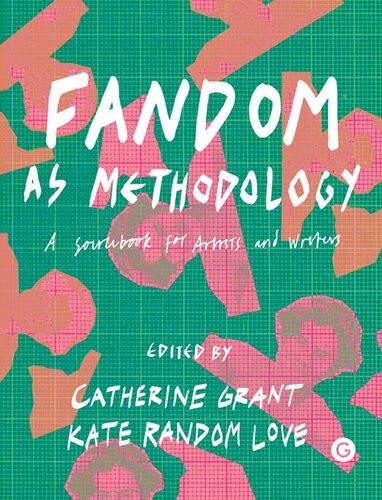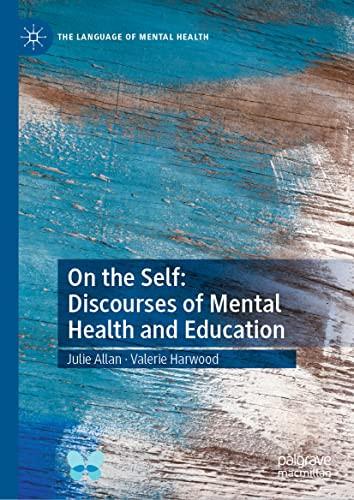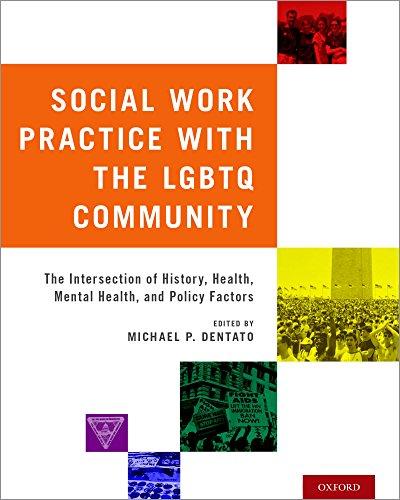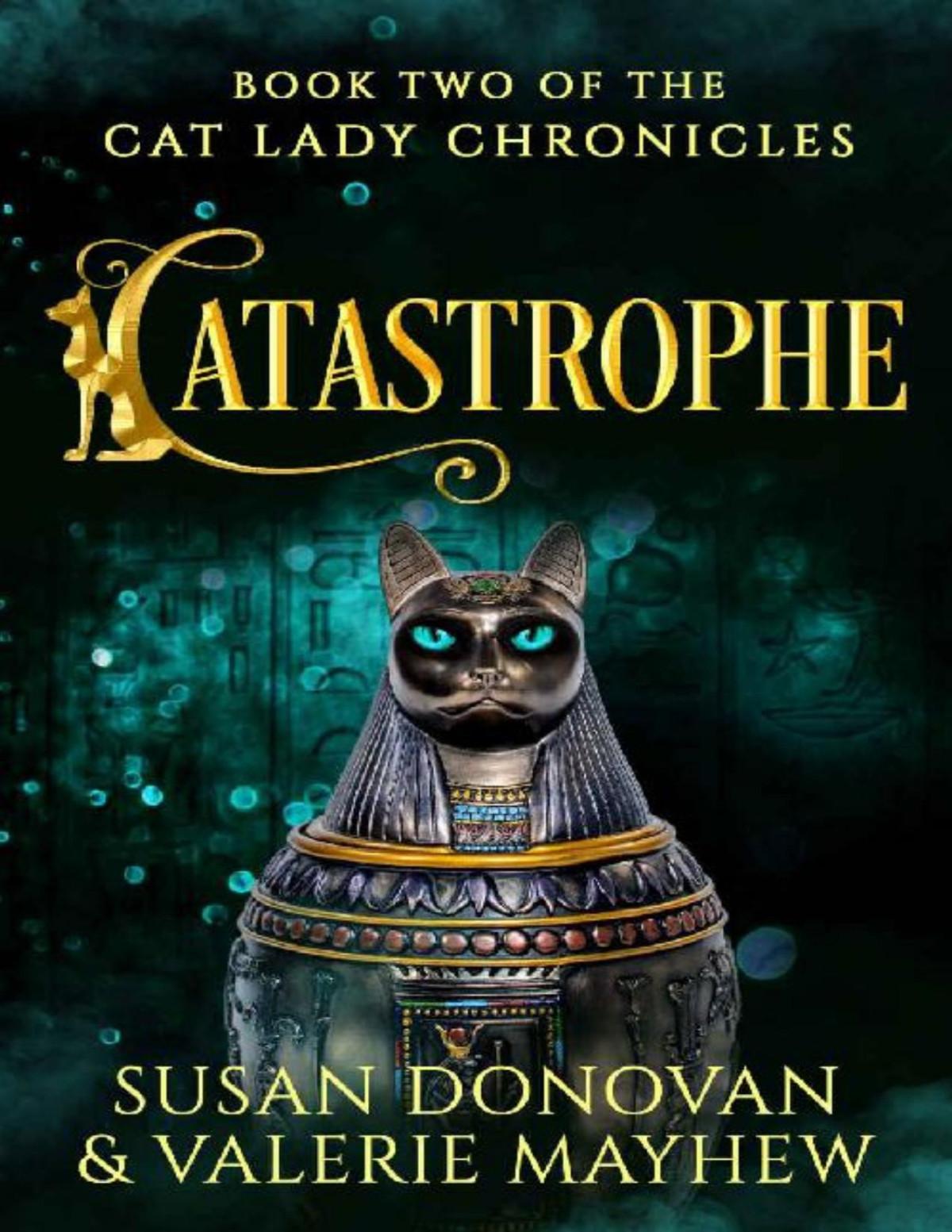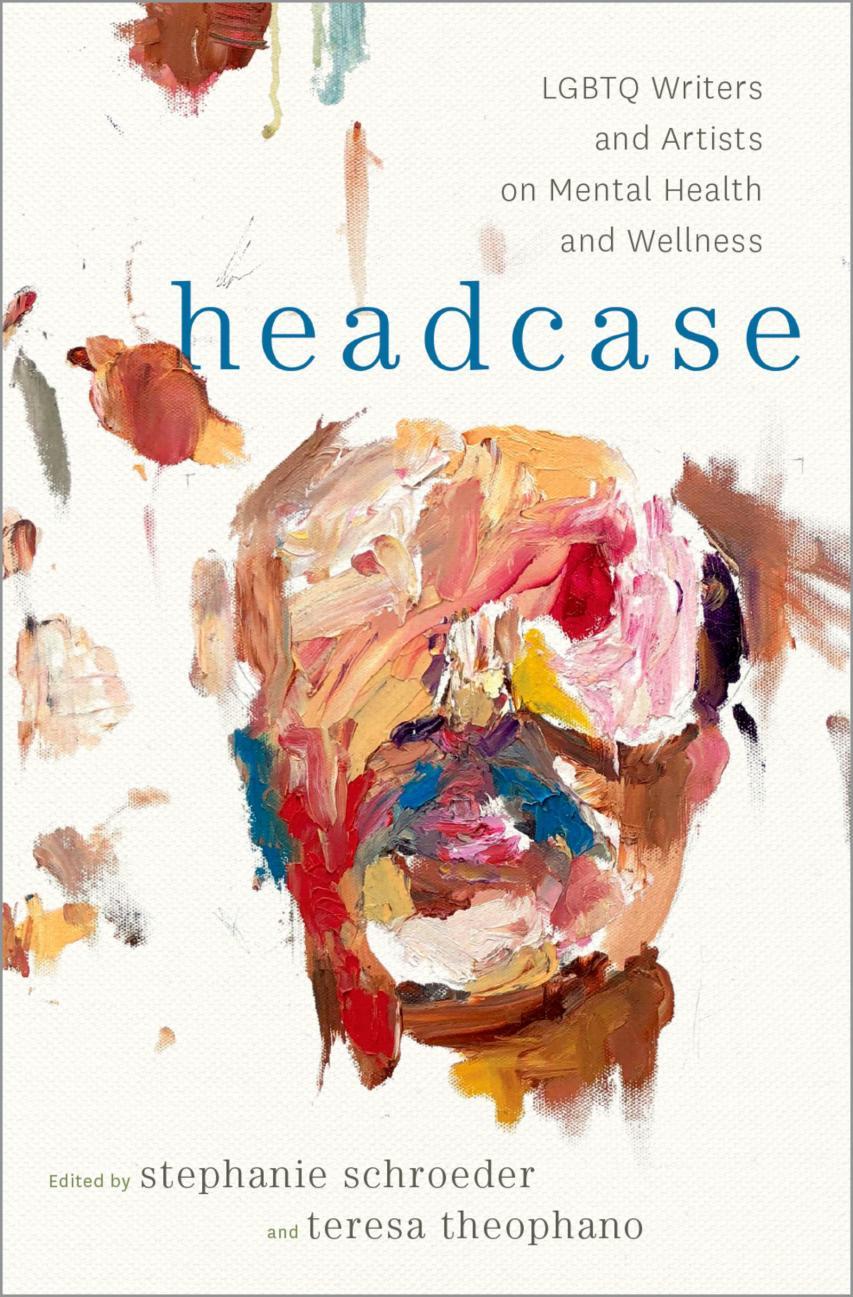1
Oxford University Press is a department of the University of Oxford. It furthers the University’s objective of excellence in research, scholarship, and education by publishing worldwide. Oxford is a registered trade mark of Oxford University Press in the UK and certain other countries.
Published in the United States of America by Oxford University Press 198 Madison Avenue, New York, NY 10016, United States of America.
© Oxford University Press 2019
All rights reserved. No part of this publication may be reproduced, stored in a retrieval system, or transmitted, in any form or by any means, without the prior permission in writing of Oxford University Press, or as expressly permitted by law, by license, or under terms agreed with the appropriate reproduction rights organization. Inquiries concerning reproduction outside the scope of the above should be sent to the Rights Department, Oxford University Press, at the address above.
You must not circulate this work in any other form and you must impose this same condition on any acquirer.
Library of Congress Cataloging-in-Publication Data
Names: Schroeder, Stephanie, editor. | Theophano, Teresa, editor.
Title: Headcase : LGBTQ writers and artists on mental health and wellness / edited by Stephanie Schroeder, Teresa Theophano.
Description: New York, NY : Oxford University Press, [2019] | Includes bibliographical references and index.
Identifiers: LCCN 2018020915 (print) | LCCN 2018024432 (ebook) | ISBN 9780190846602 (updf) | ISBN 9780190846619 (epub) | ISBN 9780190846596 (hardback)
Subjects: LCSH: Sexual minorities—Mental health. | Gender identity—Psychological aspects. | BISAC: MEDICAL / Mental Health.
Classification: LCC RC451.4.G39 (ebook) | LCC RC451.4.G39 H43 2019 (print) | DDC 616.890086/6— dc23
LC record available at https:// lccn.loc.gov/2018020915
1 3 5 7 9 8 6 4 2
Printed by Sheridan Books, Inc., United States of America
Contents
Illustrations ix
Foreword xi
Kai Cheng Thom
Acknowledgments xv
Contributors xvii
Introduction xxvii
Stephanie Schroeder and Teresa Theophano
Disclaimer xxxiii
Part I: Conversations About Mental Health and Wellness
1. Falling Between the Cracks of Queer and Black 3
Tanisha Neely
2. Queer Affirmative Therapy 12
Arlene Istar Lev
3. Not All Wounds Are Visible 24
Louisa Hammond
4. Border/ L ines 26
Juan Antonio Trujillo
5. Sa Kanyang Sariling Mga Salita: Health, Identity, and Articulations of Self 38
Donald V. Brown, Jr., with Fidelindo A. Lim
6. Trust Me, I’m a Doctor 46
Lynn Breedlove
7. LGBTQ Substance Abuse and Mental Health Issues: A Provider’s Journey 50
Joseph Ruggiero
8. The Bone Crushing 54
Bill Konigsberg
Part II: Stories of Survival
9. In Chiron’s Footsteps 61
Paula J. Williams
10. Not Our Fault 71
Chana Wilson
11. Figuring It Out Together: Mental Health Survival Strategies from Detroit’s Queer and Trans Youth of Color 80
Lance Hicks
12. Sisyphus (or: Rocks Fall and Everyone Dies) 88
J. R. Sullivan Voss
13. The Family Legacy Ends Here 101
Teresa Theophano
14. Roll the Dice 110
Michael Brown
15. Jesus and the Closets 112
Sara Zaanti
16. The Lived Experience of LGBT Veterans: Finding Support Within the VA Healthcare System 118
Kathryn Wagner
Part III: Encounters of the Mad Kind
17. Psychiatry 127
Kate Millett
18. Surviving Science, or: How I Learned to Stop Worrying and Love Being Mad and Queer 128
Calvin Rey Moen
19. Knowing Reynolds 139
Lucy Winer
20. On a Subway Platform, a Life Flashes—Here, Gone 149
Antoine B. Craigwell
21. This Work Is About Digested Socks 156
Gabrielle Jordan Stein
22. Taming My Inner Fundamentalist 162
Kelly Barth
23. Fix Me Please: I’m Gay! 169
Guy Albert
24. Crowdsourcing My Antipsychotic 178
Stephanie Schroeder
Part IV: Pushing Boundaries
25. On Listening to Clients, or Why Do Providers Sometimes Have a Hard Time
Hearing What Recipients of Care Have to Say? 187
Christian Huygen
26. Problem Glyphs 195
Eliza Gauger
27. Erasure 202
Gabriella M. Belfiglio
28. Informed Consent 208
Asher J. Wickell
29. Bad Penny 213
J. M. Ellison
30. Liberating the Big Pink Elephant in the Therapy Room 219
Thomas Mondragon
31. GLEAM 231
Nikkiesha N. McLeod
Part V: The Poetics of Mental Health and Wellness
32. Outlier: The Agoraphobia Fragments 249
Kevin Shaw
33. Were You Confused as a Child? 251
Stephen Mead
34. Pleasure-Based Parenting 253
Crista Anne
35. Doctor Anonymous: A Play, and a Lesson in Medical Ethics 260
Guy Fredrick Glass
36. Jekyll’s Lover 265
James Penha
37. Feathers 268
Benjamin Klas
Resources 271 Index 277
Illustrations
2.1 Dr. John Fryer (Dr. Henry Anonymous) with Frank Kameny and Barbara Gittings, 1972 APA Convention 14
3.1 “Not all wounds are visible,” by Lousia Hammond 25
12.1–12.13 “Sisyphus (or: Rocks Fall and Everyone Dies),” a graphic diary by Sullivan Voss 88
17.1 “Psychiatry,” a photo by Kate Millett 127
21.1–21.5 “This Work Is About Digested Socks,” by Gabrielle Jordan Stein 157
26.1 “Baphomet’s Blessings” in “Problem Glyphs,” by Eliza Gauger 196
26.2 “Grace Amidst Monsters” in “Problem Glyphs,” by Eliza Gauger 197
26.3 “Half-Life” in “Problem Glyphs,” by Eliza Gauger 198
26.4 “Live Betwixt” in “Problem Glyphs,” by Eliza Gauger 199
26.5 “Mutatis Mutandis” in “Problem Glyphs,” by Eliza Gauger 200
26.6 “Sheela Na Gig” in “Problem Glyphs,” by Eliza Gauger 201
33.1 “Were You Confused as a Child?” by Stephen Mead 252
Foreword
Kai Cheng Thom
I am several months behind deadline on writing this foreword: first, there were the implications of a mental health crisis of my own, then there was the deluge of catchup emails, work obligations, other writing deadlines. The usual story: I am crazy, but capitalism marches on. There were phone calls from friends and friends of friends in the middle of the night, queer and trans people I love and some I barely know, searching for any kind of support that felt both relevant and safe—always someone on the brink of a breakdown, a depressive or manic episode, a suicide.
Dear queer readers, let’s be honest: often, that someone was me. And sometimes that someone is you.
Beneath the winding road that leads to the “queer community” (scare quotes because queer community so often feels like a mythical place—somewhere we talk about but rarely find, somewhere just beyond the rainbow) there is the shadow we call mental health, mental illness, trauma, madness, and a hundred other whispered names. For all our words, we still struggle to speak of it: shame, the legacy of over a century of pathologization, stigma and psychiatric abuses, still clenches its bony hand around our throats.
Audre Lorde, the patron saint of queer women of color, once wrote that our silence will not protect us. Sigmund Freud, an ambiguous figure at best to many LGBT persons, wrote of language’s “magical power” to transform emotion and heal the psyche’s wounds. Those of us who are therapists, poets, artists, storytellers know: speaking the truth has always been our greatest power.
In Headcase, Stephanie Schroeder and Teresa Theophano have woven an ambitious tapestry of diverse LGBTQ voices, professional and academic disciplines, and storytelling mediums. The anthology traces the past and present of psychiatry’s oppression of queer sexualities and identities, reflects on the contemporary state of queer psychotherapeutic and mental health services, and lays bare the emotional and spiritual intersection of queerness and madness through trenchant personal narratives. Balanced throughout the collection are a wide span of racial, gendered,
and generational perspectives—a sorely needed shift from a paradigm of mental health writing and activism that tends to center White, cisgender, middle-aged individuals.
One great strength of the anthology is that Schroeder and Theophano have chosen to situate academic, literary, and artistic contributions alongside one another, on equal footing. Thus, Arlene Istar Lev’s review of historic and contemporary therapeutic practices with queer and trans people speaks in dialogue with Juan Antonio Trujillo’s searing narrative excavation of the borderline personality construct, which in turn resonates with Guy Glass’s heartbreaking evocation of conversion therapy in the excerpt from his play. These are but a few of the varied forms and subjects that comprise the shimmering, kaleidoscopic vision of this collection.
Tellingly, the editors have also chosen to place both “victims” and “healers” of mental dis-ease on equal footing: In Headcase, poet and practitioner, client and clinician, speak as a chorus in a subversion of the rigid crazy patient–wise therapist boundaries that are endorsed by Western colonial mental health disciplines. In the space where “mental health professionals” can strip away their professional accoutrements and bare their vulnerabilities, where those who have been pathologized as “mental health patients” seize control of their own narratives, a truer and more human relationship emerges.
Headcase speaks to the chaotic intensity that is queer mental health and illness in a world that both fetishizes and despises us. Despite some historic gains won by queer and trans mental health advocates of the past decades, the times remain dangerous and crazy-making for the vast majority of us—and what ground has been gained is in danger of being quickly lost as neo-fascist and White supremacist movements march toward political resurgence.
So, we struggle on, somehow. We fall behind on our work, we disappoint the ones we love, we set up makeshift crisis hotlines in our bedrooms at night. We survive, often in fear and silence.
A few months ago, I consulted a fellow trans woman therapist—the only other trans woman therapist I am acquainted with in North America, actually— on a clinical case with which I was struggling. In my work on this case, with a young trans client whose life story resonated intensely with my own, I worried that my strong protectiveness and affection for this client might in some way blind my judgment. Settler colonial and cis-normative therapeutic training had taught me that strong feelings were weakness, a contagion that might infect those I have dedicated my life to supporting.
I was, in a word, afraid: afraid of my own past, my trauma, my madness. And I was ashamed that this young client could evoke such intense feelings in me, a trained
social worker and therapist who had supposedly attained the type of stability and dispassion that mainstream mental health so deeply values.
My trans woman peer listened to my fears. She heard me out compassionately and critically, evaluating each fear with care. And then she told me that it is our responsibility and our privilege as survivors of the system who have found our way to the other side of power to love our clients— our communities, our selves—fearlessly.
When I reflect on the overarching impact of this anthology, I believe that this is what Headcase brings to the discourse on queer and trans mental health: fearless love. Fearless love of our madness. Fearless love, and the language we need to speak a new reality into being.
Acknowledgments
I am indebted to my friend and co-editor Teresa Theophano for asking me to work with her on this important book, trusting my judgment and instinct throughout the process, and remaining friends afterward.
From the first email exchange with our editor at Oxford University Press, Dana Bliss, I knew we had a trustworthy professional as well as a supporter and admirer on our side. Dana gently, but firmly, guided us through the process of editing and producing Headcase; first, by accepting our prospectus, and then cheering us on every bit of the way. Dana’s insistence on adding clinicians to the mix of pieces has made the collection much stronger. I also appreciate his acceptance of our bottom line of keeping the book free of academic jargon. Additionally, Dana’s assistant, the extremely knowledgeable Andrew Dominello, was an important support for me in the process. He was a fan of the book from the start and fielded my random questions, always being more than helpful.
I have to hand it to my friend and former PR client Nancy Blaine, who, on top of transitioning out of her editing job at Oxford to found her own local business, made sure our book proposal reached Dana, albeit through a very circuitous channel.
I am grateful for every contributor to this book: you each bring such a unique and necessary perspective to the topic of LGBTQ mental health. Thank you so much for hanging in there with us for the duration.
Liz Margolies, an early advisor, helped with standards around vetting clinical submissions, provided other appreciated input, and was supportive in numerous ways throughout the process. My sister, Ann Schroeder, proved a trusty second set of eyes and valuable sounding board for me during this project. She was so much more than an editorial advisor and I will be forever grateful for her assistance. My partner, Lisa Haas, provided technical assistance instrumental in assembling the final manuscript. Along with insight, warmth, and caring throughout the several-years-long process, she was also immensely supportive in many other ways. I also want to thank Sophie Keir who has been extremely supportive of Headcase from inception and has kept up with the demands of our project even while in the process of grieving her beloved companion and artistic partner and Headcase contributor Kate Millett.
I could not have finished this book without any of the above-mentioned folks, and many others I did not mention. Thank you all!
Stephanie Schroeder
I have such gratitude for our wonderful editorial team at Oxford University Press. Dana Bliss and Andrew Dominello have championed and strengthened Headcase every step of the way. Stephanie Schroeder has been a dream co-editor, and I can’t think of anyone with whom I’d rather collaborate. Thank you to all of our fabulous contributors. It takes such courage to “come out” as LGBTQ+ and mad. I am touched by and thankful for each and every one of you. Thanks to Liz Margolies of the National LGBT Cancer Network for her insightful technical assistance and huge heart.
Thanks to my loving and supportive parents, Shelli Shaw, Dimitri Theophano, and Marc Shaw, and my brilliant, witty, and warm Aunt Janet Theophano. They have shown up for me through thick and thin during the course of this book’s development (and beyond).
I have the best friends and chosen family in the world, and their support, encouragement, feedback, and advice have helped immeasurably with this project and with my life in general!: Tessa Bronner, Michelle Brotman, Chelsea Ebin and Jack Vimo, Helen Fourness, Stephanie Gilman and Judy Yu, Andy Hale, Keith Kahla, my platonic/work husband Pony Knowles, Lauren Lydiard and Jake Campbell, Krissy “Jude” Mahan, Roseann Marulli, Abby Nathanson, Robyn “Dude” Overstreet, Sary Rottenberg, D. Schiff, my down-the-hall family Jean Shepherd and Jack Skelton, Phoenix Schneider, Greg Stephens and Chris Silva, CB Stewart, my punk-rock little sister Sara Takacs, Monica Terry, the legendary Jay Toole, and, last but absolutely not least, Johanna and Brad Wood. Jennye Patterson supported this project when it was still a twinkle in my eye. Much appreciation to Tom Weber at SAGE and to Dr. Jack Pula for all you do.
Teresa Theophano
Contributors
Guy Albert, PhD, is a licensed psychologist and Jungian analyst working with adolescents, adults, and couples in Berkeley, California. He’s an adjunct faculty for JFK University, a former adjunct faculty for Sofia University, and a former clinical director for Pacific Institute. Dr. Albert is an analyst member of the C. G. Jung Institute of San Francisco. He is also a member of the American Psychological Association, the California Psychological Association, and Gaylesta, the Psychotherapy Association for Sexual and Gender Diversity. Dr. Albert has been active in the fight against the practice of conversion therapy, including support for the passage of SB 1172, the first bill in the world that protects minors from being subjected to conversion therapy in California. He is currently co-coordinating a national effort to have all major US healthcare associations sign a joint statement warning against the potential harms and unethical nature of conversion therapy.
Crista Anne is a passionate advocate for sexual freedoms, inclusive pleasure-based sex education, and reproductive justice. As a Professional Oversharer, she uses memoirist blogging and decades of experience working in sexuality to educate via shared experience. “Internet famous” for her #OrgasmQuest, she loves to spark conversations around sexuality, queer parenthood, and mental health. Proudly, she is an Advisory Board Member at the Effing Foundation for Sex-Positivity and Leadership for the Woodhull Sexual Freedom Summit. A native Wisconsinite, she is based on the East Coast of the United States where she lives with her partners and children and their dogs.
Kelly Barth lives in Lawrence, Kansas, with her wife, landscape painter Lisa Grossman. She is a clerk and social media manager at The Raven Book Store. My Almost Certainly Real Imaginary Jesus is her first book.
Gabriella M. Belfiglio lives in Brooklyn, New York, with her partner, son, and four cats. She teaches self-defense, conflict resolution, karate, and tai chi to people of all ages throughout the five boroughs of New York City. Gabriella won second place in the W. B. Yeats Poetry Contest. Her work has been published in many anthologies and journals including The Shanghai Literary Review, Radius, The Centrifugal Eye, The Potomac Review, and Lambda Literary Review. Her website is www.gabriellabelfiglio.info
Lynn Breedlove helps outsiders live in a world that wants them dead by creating punk songs, essays, novels, solo shows, and screenplays and advertising for his latest trans-portation entrepreneurial endeavor. He’s always working on a new form. Currently: poetry (45 poems about love and war) and memoir. He fronts bands The Homobiles and Commmando, and runs Homobiles, the nonprofit ride service, and Lickety Split Trans AF Delivery. Breedlove believes in the scientific fact that love is energy, infinite and unstoppable, as it cannot be destroyed, only transformed.
Donald V. Brown, Jr. is a doctoral student in Critical Social Psychology at The Graduate Center, City University of New York, where he is a Presidential MAGNET Fellow. His research interests include social identity development and maintenance over the life span, intersectionality as theory and method, and identity development in postsecondary contexts. More broadly, Donald is concerned with questions of social categorization and its scientific, societal, and personal consequences. He has previously worked on projects in the Center for Intersectionality and Social Policy Studies, under the leadership of Kimberlé W. Crenshaw, at Columbia Law School. For the past seven years, in addition to academic pursuits, he has served as a higher education professional at New York University—most recently as Associate Director of Student Services for Global Public Health. He holds a master’s degree in higher and postsecondary education from Teachers College, Columbia University, in addition to a bachelor’s degree in neuroscience.
Michael Brown is a published poet based in Cambridge, England. His audiobooks became popular after film star Sigourney Weaver reviewed them. He is currently working on a science fiction novella and is a researcher at Cambridge University.
Antoine B. Craigwell is Founder, President, and CEO of DBGM, Inc. He is originally from Guyana. As a journalist, Antoine graduated from Bernard Baruch College of the City University of New York, and, in 2008, he earned awards from the New York Association of Black Journalists. He has written for FORTUNE Small Business magazine, Out In Jersey magazine, The Bilerico Project, The Bronx Times Reporter, and The New York Amsterdam News ; was the assistant editor with The Network Journal ; and has been a contributor to mainstreet.com. Antoine produced the documentary “You Are Not Alone” (www.yana-thefilm.com) and facilitates multiple forums on depression in Black gay men. He founded DBGM, Inc. (www.dbgm.org ) in 2013, and presents workshops on the convergence of HIV and mental health; he has been a keynote speaker at several national and international conferences and provides training in cultural competency for LGBTQ peoples of color. DBGM hosts the annual LGBTQ Peoples of Color Mental Health Conference.
J. M. Ellison is a writer, a teacher and scholar, and a grassroots community activist. They are also a doctoral student in Women’s and Gender Studies at the Ohio State University. J. M. is interested in using stories both fictional and true to build community, document social movements, and imagine a liberated world. Their work has been featured in the Baltimore Review, Lunch Ticket, Story Club Magazine, and many other publications. From 2007 to 2010, they lived in Palestine. They are currently in the process of publishing a graphic novel about their experiences. J. M. believes that storytelling is integral to healing, transformation, resistance, and survival. Their fiction, nonfiction, and academic work is available at http://jmellison.net
Eliza Gauger is a writer, artist, and the creator of occult psychotherapy project Problem Glyphs, sci fi collaboration with Warren Ellis DEEP MAP PILOTS, doom space metal comic Black Hole Wizard with writer Simon Berman, and the reimagining of the cult underground webcomic, Jerkcity HD. They are represented and collected in Seattle, San Francisco, Berlin, Munich, and New York. Upcoming illustrations and stories by Gauger will appear in Queers Destroy Science Fiction! and Queers Destroy Horror! by LIGHTSPEED Press, as well as guest pages in BARTKIRA. Gauger is indifferent about their pronouns, and passionate about drawing the perfect aquiline nose.
Guy Fredrick Glass is a psychiatrist who is also a playwright. A graduate of the University of Pennsylvania School of Medicine, Guy served on the executive board of the Association of Gay and Lesbian Psychiatrists and was in private practice for many years in New York City. A growing interest in theater led him to write Doctor Anonymous, a play about gay conversion therapy and the events leading up to the removal of homosexuality from the Diagnostic and Statistical Manual of Mental Disorders (DSM ); his play was produced in Los Angeles in 2014 and published by Heartland Plays. In 2015, he received his MFA in theater from Stony Brook University. Guy is Clinical Assistant Professor at the Center for Medical Humanities, Compassionate Care and Bioethics at Stony Brook School of Medicine, and a Fellow of the College of Physicians of Philadelphia, where he is on the steering committee for the Section on Medicine and the Arts.
Louisa Hammond is an artist based in Manchester, England. Louisa is passionate about raising awareness of what it is like to live with an invisible illness. Her chosen medium is textiles—specifically machine and hand embroidery. Her artwork has, in the past, explored her personal experiences of having a mental health condition. Through her artwork and current practice, she focuses on the experiences of other people with lived experience of mental illness. This body of work has been developed through research gathered by studying for a master’s degree in embroidery at Manchester Metropolitan University. Louisa is passionate about working with people
who are vulnerable and less represented. She would like to share their perspectives and raise awareness about mental health issues with an aim to destigmatize possible prejudices she has faced personally, as a person living with a long-term invisible illness.
Lance Hicks is a clinical social worker and community organizer born and raised in Detroit, Michigan. He identifies as Black, mixed, trans, and queer. Since 2005, Lance has been a street outreach worker, a crisis interventionist, a mental health therapist, a youth program coordinator, and an education mentor for oppressed youth across Southeast Michigan. In his free time, Lance spends time with his friends and chosen family, writes, take pictures, and nerds out over neurobiology and traumatology.
Christian Huygen, PhD, is a clinical psychologist and the executive director of Rainbow Heights Club, a psychosocial support agency for LGBT adults living with serious mental illness. Ninety percent of the Club’s clients stay free of hospitalization each year, and the agency’s services are provided at no cost to the client. In 2012, Dr. Huygen was appointed to the Multicultural Advisory Committee of the New York State Office of Mental Health. He organized three conferences on LGBT affirming behavioral health services and developed a training program for mainstream care providers. The curriculum has been presented to thousands of individuals who work at hundreds of agencies, clinics, hospitals, and residences. Along with Dr. Barbara Warren, Dr. Huygen successfully advocated for the inclusion of questions about sexual orientation and gender identity in the New York State Office of Mental Health’s statewide patient surveys and records for both inpatients and outpatients, to better understand the prevalence and needs of LGBTQ people living with mental illness.
Benjamin Klas lives in Minnesota with his partner and their son. He spends his days block printing, playing the ukulele, parenting, and writing, although not necessarily in that order. His works have appeared in a handful of literary magazines and a collection by queer authors.
Bill Konigsberg is the award-winning author of four young adult novels. The Porcupine of Truth won the PEN Center USA Literary Award and the Stonewall Book Award in 2016. Openly Straight won the Sid Fleischman Award for Humor and was a finalist for the Amelia Elizabeth Walden Award and Lambda Literary Award in 2014. His debut novel, Out of the Pocket, won the Lambda Literary Award in 2009. His most recent novel, Honestly Ben, received three starred reviews from Publishers Weekly, Booklist, and School Library Journal. He lives in Chandler, Arizona, with his husband Chuck and their Australian Labradoodles Mabel and Buford.
Arlene Istar Lev, LCSW-R, CASAC, CST, is a social worker and family therapist who is the founder and clinical director of Choices Counseling and Consulting (www.
choicesconsulting.com) and TIGRIS: The Training Institute for Gender, Relationships, Identity, and Sexuality (www.tigrisinstitute.com) in Albany, New York. She is a parttime lecturer at the University at Albany, School of Social Welfare and is the Project Director of the Sexual Orientation and Gender Identity Project (SOGI). She is also an adjunct professor at Smith College School for Social Work and Empire College. Lev is also the Board President for Rainbow Access Initiative, Inc., which provides lowcost therapy to LGBTQ individuals. She has authored numerous journal articles and authored two books: The Complete Lesbian and Gay Parenting Guide and Transgender Emergence: Therapeutic Guidelines for Working with Gender-Variant People and Their Families, winner of the APA (Division 44) Distinguished Book Award, 2006. She has spent many hours on both sides of the proverbial couch.
Fidelindo A. Lim has worked as a critical care nurse for 18 years. Concurrently, he has been a faculty member at New York University Rory Meyers College of Nursing since 1996. Dr. Lim has published numerous articles on various topics including clinical practice, geriatric nursing, nursing education issues, LGBT health disparities, reflective practice, men in nursing, and Martha Rogers and Florence Nightingale, among others. He is particularly interested in bridging gaps in nurse engagement and practice excellence in the clinical setting. To this end, his work as a Nurse Educator in a Magnet-designated hospital currently provides sustainable, staff-focused educational support. In further recognition of his excellence in the classroom, the NYU Meyers student body has honored him with various teaching awards over the years. Dr. Lim is also a founding member of New York City Men in Nursing, an organization for which he hosts a monthly professional development series.
Nikkiesha N. McLeod is a writer, singer/songwriter, and musician. They began playing the steel-pan at the age of twelve, when they convinced their parents to let them join the neighborhood steelband orchestra, Panasonic Connection. Currently, Nikkiesha is working on their first EP, scheduled to debut this year. They were a cofounder of the grassroots feminist zine OutLaw Sister Riff, which focused on issues affecting women and young girls, and have been a recipient of Howard University’s John J. Wright Award for poetry, a finalist in the Hollin’s Poetry Festival, and a coaward recipient for the City College English Department Adrian Schwartz Award for Women’s Fiction. Nikkiesha’s work has appeared in the literary journal [sic], in Tom Tom Magazine, and on the online literary and artistic expression of queer and trans people of color forum Black Girl Dangerous. Nikkiesha blogs at coceyea. wordpress.com
Stephen Mead , as a writer and artist publishing for the last three decades, has finally gotten around to getting links to his poetry still online at various zines available in one place: stephenmead.weebly.com/ links-to/poetry-on-the-line-stephen-mead.
His latest Amazon release is entitled “Our Spirit Life,” a poetry/art meditation on family heritage, love, and the evanescence of time. For Christmas 2014, he released a sound collage song cycle, “Threnody for a Forgotten Plague,” a series-in-progress dealing with the early days of the AIDS pandemic, free to listen to via amazingtunes. com/stephenmead/albums/24122. Currently, he is seeking a publisher for two other projects: A Thousand Beautiful Things, an esoteric book about living in two hallways and four small rooms; and “According to the Order of Nature (We too are Cosmos Made),” a text–image hybrid which looks at the language used against the LGBT community since the dawn of LGBT oppression and turns it on its head.
Kate Millett was an American feminist writer, educator, artist, and activist. Born in St. Paul, Minnesota in 1934, Millett was educated at the University of Minnesota, Oxford University, and Columbia University, where she obtained her PhD with Distinction. Best known for her groundbreaking book Sexual Politics, long credited as the “bible of the Second Wave feminist movement,” Millett is the author of twelve other books including The Loony-Bin Trip, a deeply personal account of her struggle against involuntary confinement and a diagnosis of manic depression. As an artist with a career spanning some sixty years, Millett exhibited her art and sculpture internationally, and, in 1978, she founded an art colony for women. Millett was a tireless advocate for women’s rights and the rights of the mentally ill. Described by The New York Times as one of the most important Americans of the twentieth century, Millett died in Paris in September 2017.
Calvin Rey Moen wrote his first fantasy story at the age of four and then lost it somewhere. His mom is still sad about that and brings it up all the time. His most recent fantasy story was published in JONATHAN (since renamed CALLISTO), a journal of queer fiction. He received a master of fine arts degree in creative writing but gets uncomfortable when talking about it. Calvin works as an educator and advocate for cognitive liberty and against institutional force and coercion. He also writes songs about starting fires, queer sex, and ghosts, and he performs as half of the synth-pop-post-rock duo badweatherfriend.
Thomas Mondragon, LMFT, has a private practice in West Hollywood, California, focused on the principles of gay-centered and affirmative psychotherapy. He has extensive clinical experience in dual-diagnosis substance abuse treatment. He is also a founding instructor in Antioch University Los Angeles’ LGBT Specialization, the first program of its kind devoted to academic and clinical instruction in LGBTQ affirmative theory and practice necessary for effective therapeutic work and psychological healing with LGBTQ clients. He was instrumental in creating two training sites for LGBT Specialization students to gain clinical experience— one serving the LGBTQ HIV-impacted community, and the other, Colors LGBTQ Youth
Counseling Center, serving a diverse spectrum of LGBTQ youth in Los Angeles. As affiliate faculty in Antioch’s Masters of Arts in Clinical Psychology program, Thomas has taught classes including LGBT Affirmative Psychotherapy, Intercultural Transpersonal and Depth Psychology and Gay Male Identity: Sex, Love, Intimacy & Other Community Issues.
Tanisha Neely is a passionate yogi, writer, and teacher. She is the founder and director of RESILIENT Yoga, a nonprofit organization committed to empowering people to reduce stress, be well, and face the challenges of life with resilience through the practice of yoga. Tanisha also serves as Associate Faculty in English at Indiana University—Purdue University Indianapolis (IUPUI) and Marian University, where she teaches composition and literature.
James Penha , a native New Yorker, has lived for the past quarter-century in Indonesia. He has been nominated for Pushcart Prizes in fiction and poetry, and his LGBTQ speculative story “Leaves,” also set in Indonesia, was a finalist for the 2017 Saint & Sinners Literary Festival Short Fiction Contest. His essay “It’s Been a Long Time Coming” was featured in The New York Times “Modern Love” column in April 2016. Penha edits TheNewVerse.News, an online journal of current-events poetry.
Joseph Ruggiero, PhD, is a clinical psychologist who graduated from Fordham University’s doctoral program. He has worked in the field of addiction for more than twenty years. As Assistant Clinical Director of the Addiction Institute of Mount Sinai, he oversees all outpatient programs at Mount Sinai West Hospital. In addition, he is a co-founder and director of the Crystal Clear Program, which addresses the issue of methamphetamine use in gay and bisexual men. He has co-authored an article about the program and has given many talks at conferences, grand rounds, and other forums. Ruggiero has made several television appearances to inform people about this concern, and he maintains a private practice.
Stephanie Schroeder is a writer based in New York City. She has published works in The Guardian, Curve Magazine, Brooklyn Magazine, Healthline, Life of the Law, Lambda Literary Review, and many other outlets. Her nonfiction work has been anthologized in That’s Revolting: Queer Strategies for Resisting Assimilation, Here Come the Brides: Reflections on Lesbian Love and Marriage, and Easy to Love, But Hard to Live With: Real People, Invisible Disabilities, True Stories. Schroeder is also the author of the memoir Beautiful Wreck: Sex, Lies & Suicide (2012). She works part-time as a peer advocate at a mental health shelter for homeless women ages forty-five and older. Find additional information about Stephanie and her writing at stephanieschroederauthor.com
Kevin Shaw lives in London, Ontario, where he completed a PhD in Canadian Literature at Western University. His poems and essays have appeared in The Malahat Review, Plenitude, Contemporary Verse 2, The Fiddlehead, and The New Quarterly. He received Arc Poetry Magazine ’s Poem of the Year award and the Grand Prize in the PRISM international Poetry Contest. He is the author of Smaller Hours (2017).
Gabrielle Jordan Stein is a New York City-based interdisciplinary artist. She is a queer, chronically ill sex workers’ rights activist, a public health student, a fullspectrum doula, a yoga teacher, a writer, an internationally exhibited and awardwinning visual artist, and a plant mom. Her play, work, and research all explore the intersections of tenderness and pain.
Teresa Theophano is a New York State-licensed social worker and freelance writer/ editor who co-founded the New York City Queer Mental Health Initiative (QMHI), an LGBTQ mental health peer support network in collaboration with the Brooklyn Community Pride Center, in July 2014. Since graduating from Hunter College School of Social Work with an MSW the same year that her book Queer Quotes (2004) was published, she has worked and volunteered with LGBTQ communities at numerous organizations including Rainbow Heights Club, the New York City LGBT Community Center, and Queers for Economic Justice. Additionally, she has taught as an adjunct professor at the New York City College of Technology—part of the City University of New York—and she completed a year-long training program at the Institute for Integrative Nutrition, as well as graduate courses in public health. Teresa has been involved in social justice movements for more than two decades and is interested in further exploring radical and holistic approaches to mental health. She currently serves on the board of directors of a queer homeless youth program, Trinity Place Shelter. Her writing has appeared on websites such as xojane.com and glbtq.com and in anthologies including The Queer Encyclopedia of the Visual Arts (2004) and Queerly Loving (2017).
Kai Cheng Thom, MSW, MSc Couple & Family Therapy, is a writer, performer, and psychotherapist based in Montreal and Toronto, unceded Indigenous territories. She is the author of the award-winning novel Fierce Femmes and Notorious Liars: A Dangerous Trans Girl’s Confabulous Memoir, as well as the poetry collection A Place Called No Homeland and the children’s book From the Stars in the Sky to the Fish in the Sea. Kai Cheng has been published widely on issues of gender, race, and mental health.
Juan Antonio Trujillo’s academic and creative work explores intersections between Latinx identity, queerness, and his upbringing in a devout Mormon family. As full-time faculty in the School of Language, Culture, and Society at Oregon State
University, Tony offers courses on minoritized language communities and the role of foodways in constructing ethnic identity. He has published scholarly articles on queering the Spanish as a Heritage Language classroom and the dynamics of the mixed Anglo/Latinx college language classroom, and he is a regular reader of poetry and creative nonfiction with the Portland-based Latinx writers collective Los Porteños. His short autobiographical documentary Companions: Lessons from Gay Mormon Missionaries was an official selection for Ethnografilm 2015 and winner of best LGBT film at the 2015 Oregon Independent Film Festival.
J. R. Sullivan Voss is a non-binary transgender artist living and creating in the DC Metro area. He has participated in recent local art shows with mixed-media work, writes occasional poetry, regularly crafts, and can be reached online with the handle @doitforthesulz on Instagram and offline at various local venues displaying his work. Sullivan believes in the power of art to connect and heal and encourages the readers of this book to create something every day, no matter how small or insignificant it may seem. The world can always use more voices, not less.
Kathryn Wagner is a staff psychologist at the Washington DC VA Medical Hospital. She received her PhD in clinical psychology at Duquesne University in Pittsburgh and completed a postdoctoral residency in LGBT Healthcare at a VA setting. Her clinical interests include LGBT-affirming psychotherapy and psychotherapy with minority populations. She has previously published in both psychology and creative writing journals and enjoys research that centers on the intersection of psychology, queer, and disability studies.
Asher J. Wickell is a specialist in change-work and transitions of many kinds, a onetime girl and approximate man, whose best answer to gender is: it’s complicated. Said another way, he’s a marriage and family therapist, which is a cool job, but a seriously dated title. Personally and professionally, he strives to center curiosity, creativity, and flexibility and to support others in doing the same. Asher holds an abiding interest in ambiguity—in the tense, in-between places that he regards as origin points of radical and redemptive change. He suspects this has to do with being a therapist in possession of his own SPMI (severe and persistently mentally ill) diagnosis and also being queer in Kansas. In particular, Asher sees the complex, conflictive parts of our humanity as unique sites for engaging and transforming traumatic experience, negotiating and navigating good consent, and exploring new dynamics in our gendered, sexual, and relational lives.
Paula J. Williams is a person-centred psychotherapist, supervisor, and trainer living in Scotland. She has extensive experience in working with GSDR issues and working for several LGBTQI organizations as a counselor and supervisor, and she has

